Interview: Josh Middleton on his generation and making acoustic music
South African musician Josh Middleton is a rare 18-year-old pop sensation who spent most of his days straddling the UK and SA. He released his 13-track debut album Never Give Up when he was 15 years of age. Music has always been part of his journey, from singing at the tender age of five to entering competitions and performing in musicals and theatre productions.
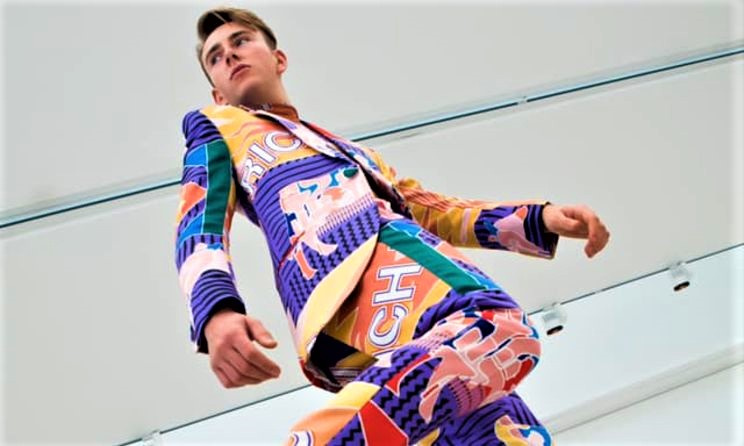 Josh Middleton wearing Rich Mnisi. Photo: Antoinette Reinecke
Josh Middleton wearing Rich Mnisi. Photo: Antoinette Reinecke
Like many young talents today, his breakout happened after posting a few cover songs that went viral online. Since then, he’s gained fans around the world, boasting an international fan base thanks to Spotify playlists. His music is also getting quite a lot of airplay in South Africa. Following his online success, Middleton sold out eight venues on his tour to Europe, where he’s also performed at unconventional venues like quirky museums and dilapidated warehouses in London.
Like most musicians in the COVID-19 pandemic, he has taken a back seat from live performances, cancelling 23 shows that have been rescheduled for next year. In addition to his music activities, Middleton recently collaborated on a photoshoot with renowned South African fashion designer Rich Mnisi, who
dressed the musician in the bright pieces from his latest season titled Alkebulan, which appeared at Mercedes Benz Fashion Week in Berlin.
He also recently released his second studio album A Mild Case of Insomnia, which takes somewhat of a departure from his electronic debut EP. And with the new highly acoustic eight-track project, the singer is determined to show the world that independent musicians have more drive than their signed counterparts. Music In Africa reached out to Middleton talk about his musical journey.
MUSIC IN AFRICA: What’s your vision?
JOSH MIDDLETON: I’m trying to create something authentic and unique that has meaning. I don’t think there’s a lot of artists out there who can touch on struggles, specifically my generation. I went through this stage before, where I was listening to so much music but I couldn’t find anything relatable for that moment. There are a lot of tracks that I’ve written stories about because of that. I’ve also realised that our generation is so different and that there’s such a divide among us. There’s a lot of kids that have had difficulty forming meaningful relationships, especially with having phones and being on social media so early on in their lives. So I just want to tell true stories.
Your music touches on themes of love, suicide and depression. Are your songs inspired by personal experiences?
It depends. There’re songs on the album about my personal experiences. I had a friend who struggled a lot with suicide and depression, so I wrote a song about that. I’ve also seen people lose loved ones and written about that too, even though I wasn’t involved in that story. There’re also songs that touch on multiple issues that I’ve never experienced before, so it’s a mix of both personal and impersonal experiences.
How does the SA music market compare to its UK counterpart?
They’re quite similar industries, but it’s a lot more competitive in the UK. For every talented person in SA you’ve probably got about 10 other equally gifted competitors in the UK. The UK also supports the arts industry a lot more than SA does. The one important thing, I think, is that SA musicians should aim to take the success they’ve created in SA overseas and create an even bigger success.
Do you think your dual citizen status gives you an added advantage over South African artists in terms of growth as a musician?
Yes. I’ve got so many friends who would never be able to go overseas and share their gifts there. So I’m really lucky. But to be honest, right now with technology you can make an impact before you even visit these countries. In 2017, I put together a couple of cover songs and posted them on the Internet and they went viral, garnering about 5 million views. From that I collected a lot of fans around the world. This was before I had done or experienced anything in the UK’s music industry. That traction I had gained online kick-started my European tour, and from the success of those songs online I was able to sell out some concerts in Europe.
Do you think artists sometimes spend too much time writing songs and overthinking the creative process?
Definitely. I think artists go through this phase of what we call 'writer’s remorse'. Spending so much time thinking about how you’re going to write a song that’s better than something else or your previous songs. But there are those moments where you instantly get a song, like ‘Stay’ and ‘Caught’. But there’s also songs that took me two years to write. ‘Song of the Year’ took two-and-half years to write. I could never find the right chorus for it.
If you had the power, what would you change about the music industry?
There’s a lot of tension, hatred and jealousy in the industry. And I understand that it’s human nature to be jealous, but I’d create a happy environment. Artists need to create a supportive environment for each other. I also think there’s a lot people in the industry that could be bypassed in terms of third parties. There are too many managers, publicists, booking agents and labels out there. I’ve been through so many booking agents myself and got screwed over, and that’s why I’m self-managing right now. It just becomes a queue of costs where everybody is just trying to get a bang for their buck. You get prominent managers in the industry who have worked with the likes of Locnville, Goodluck, Mi Casa. They come along and charge say R20 000 [$1 300] a month, but they can’t say what they’d be able to do for you. I can do everything a manager can do myself.
What’s been your worst experience as an emerging musician?
There was a popular local booking agent who once booked me and several artists for a festival. We were told that there was a limited budget and wouldn’t be able to get paid for our performances. So the agent gave us small amounts of R500. We later found out that she was given R100 000 to be distributed between the artists. But in the end there was about seven artists who all got about R500 each. I also remember not wanting to sign this one contract – we were told to split song royalties for a track that I completely wrote myself. So there’s a lot of sabotage in the industry, and you have to be tough.
Tell us about your latest album
The majority of songs on the album were written overseas. I signed with Ditto when I was in the UK and then slowly started releasing singles, and spent an entire year working with many talents and experimenting with sounds. My first album was very electronic, but I went almost completely acoustic on my latest album. I almost got taken back to my roots; when I was younger my inspirations were Whitney Houston, Christina Aguilera, Aretha Franklin, and a lot of R&B influences and soul. So I’d say the album is probably re-rooting myself into soul and acoustic elements. ‘Freedom’ is one of my favourites on the project. It’s a powerhouse anthem that says it’s okay to be free, live your life and don't be afraid of what people think. And the album is called A mild Case of Insomnia because we didn’t sleep much during its production.
What kept you busy during the lockdown and what are you planning to do next?
I did a lot of charity shows during the pandemic restrictions, but have been reluctant to do streaming content from home and create something that I wasn’t 100% happy with. Going forward, I’d love to work with local female musicians like Shekinah, there’s so much talent here. But before that, I’m definitely going to take five minutes off. I’m going tour go overseas. It’s been a hectic two years.










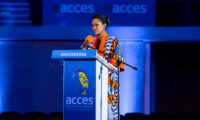




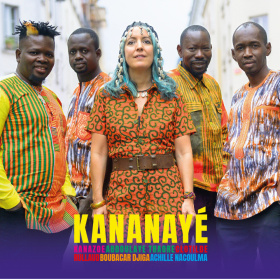
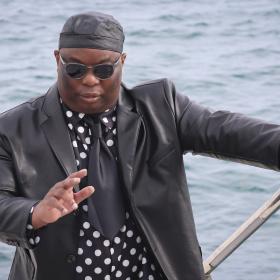
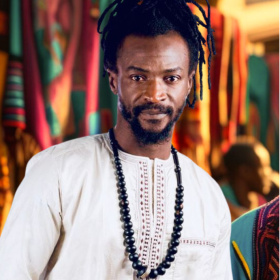





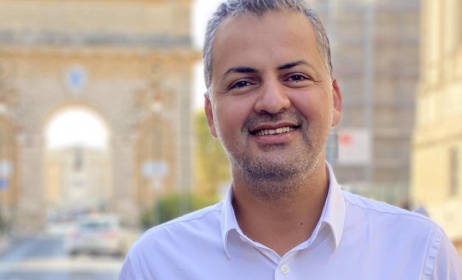

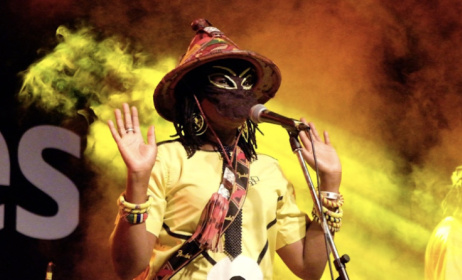
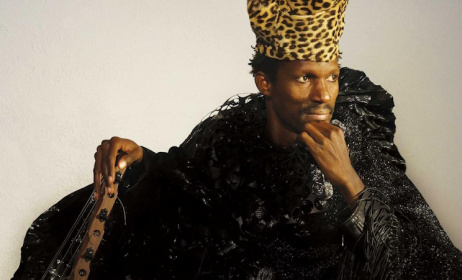


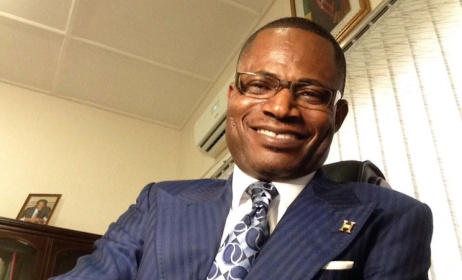
Commentaires
s'identifier or register to post comments